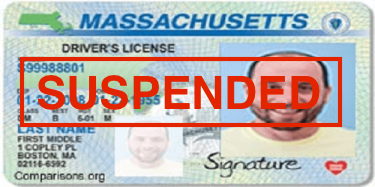Most Common Crimes Committed in the State of Massachusetts

Understand the impact of your actions and what you could potentially face for criminal charges by learning more about what the most common crimes are in the State of Massachusetts and what the potential penalties are. Crimes are broken up into two different categories misdemeanors and felonies. In Massachusetts, each of these categories are separated based on the severity of the penalties that may be incurred by the individual who committed those crimes should they be proven guilty. Below is a list of some common crimes committed in Massachusetts:
-Assault and battery
-Drug possession with intent to sell
-OUI (3rd plus offense)
-Motor Vehicle Homicide
-Gun Charges
Misdemeanors versus Felonies
A felony is a crime typically involving violence, which is punishable by death and state prison incarceration. Each criminal statute has its individual list for possible penalties. Murder is the most serious felony crime in the state of Massachusetts. The less serious felony crimes are rape, assault, battery, embezzlement and food stamp trafficking. In addition to the possible penalties, a felony will remain on criminal background checks for 10 years or so.
First-degree murder is a crime that draws the harshest of sentences from a judge. Murder in the Commonwealth of Massachusetts is defined as a premeditated, deliberate act or it may also happen when someone commits another serious felony and in the act, kills an individual. The maximum penalty for first-degree murder is life in prison without parole. The death penalty is unconstitutional in Massachusetts now but persons facing federal charges may be sentenced the death penalty.
Embezzlement is another serious crime that when committed is considered as a felony. The level of possible penalties depends on the value of the assets or property involved in the larceny. Usually, the embezzlement felony occurs within an employee/employer relationship.
- Crimes committed with property worth less than $250 and first offenses carry a fine between $50-$600 and anywhere from 6 months to two and a half years of prison time.
- Crimes committed with property valued less than $250 and past offenses carry a fine between $150-$6,000 and anywhere from 18-30 months for a prison sentence.
- Embezzling trade secrets can bring fines up to $25,000 with prison sentences from two to five years.
A misdemeanor is a less serious crime with sentences up to 2.5 years in a county jail and a fine up to $2,500 depending on the offense. Jail sentences for misdemeanors are considerably rare. Misdemeanor crimes include but are not limited to assault and battery, criminal harassment, hazing, prostitution and driving under the influence. With the sentencing, there is not much room for negotiations but providing the judge with background information and adding some context may help with the decisions for sentencing. Common misdemeanors include a minor in possession of alcohol, assault, DUI and resisting arrest.
Assault is a serious crime that depending on the bodily injury of those involved can be classified as either a misdemeanor or a felony. The sentencing for assault charges depend again on the level of bodily injury and who was injured. Those who have committed potential crimes against children or say a pregnant woman will receive more intense sentencing that those say in a bar fight where noses were broken.
DUI (Driving under the Influence) is classified as a misdemeanor. To get a DUI your blood alcohol content (BAC) must be 0.02% if you’re under 21, 0.08% if 21 or older and if you are driving a commercial vehicle it must be no more than 0.04%. Depending on whether or not the DUI is your first DUI offense the sentencing will be different. If it is your first offense, the fine is between $500-$5,000 with up to 30 days in jail. The sentencing escalates if it is your second offense or more.
Statute of Limitations
In the State of Massachusetts, the law states that criminal prosecution begins within a certain amount of time of a crime having been committed or a crime thought to have been committed. The statute of limitations limits the amount of time the state can wait before bringing charges against a person.
For more information, contact Boston’s top criminal lawyer for more information on common misdemeanors and felonies.



